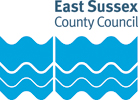Children’s Services Early Help Public Consultation
Overview
The draft Early Help Strategy Building Stronger Families sets out East Sussex County Council Children’s Services proposal to invest in Early Help from 2020-2023, and the proposed changes to current services.
Our proposal is to fund and provide Children’s Services Early Help that supports the most vulnerable families and reduces child safety concerns, within available resources.
The draft strategy makes it clear that Early Help is about the services and support we deliver, not buildings. Under the draft strategy we would retain 12 of the 26 children's centres. Our aim is to identify providers of other pre-school or education services who may want to take over the remaining 14 buildings, but where this is not possible the centres could close. Support and services would still be provided where needed but would be delivered differently. Where a need develops in a specific location for a service, this could be provided in an alternative venue in future.
The 14 centres are: Hampden Park, Old Town (Eastbourne), The Bridge (Hastings), West St Leonards, Chailey, Newhaven, Ringmer, Seaford, Battle, Egerton Park (Bexhill), Rye, Crowborough, Heathfield, High Weald (Ticehurst).
We will:
Prioritise children’s safety, ensuring child safeguarding systems are resilient and managing the amount of people who need social care involvement.
Target the resources we have to make effective early interventions with the right families.
Tackle the specific issues that cause people to need help from social workers, at the right time and for the right duration, building stronger families for the future.
Build in flexibility so that our services can adapt to having less resources and also take-up new funding opportunities.
Work in partnership with other Council services, and partners across public sectors, businesses voluntary organisations and health, to ensure the best combined support to vulnerable families.
Connect with ongoing projects to develop community resilience.
We will offer:
- Family keywork with families at risk of needing social care intervention, offering short term help where that is appropriate to maximise the number of supported vulnerable families.
- Evidence-based and targeted family group work to support keywork and maximise the number of vulnerable families we work with.
- Evidence-based youth work with young people at risk of needing social care intervention, in support of keywork.
We will continue to deliver additional early help services on behalf of East Sussex County Council Public Health team and external partners. Our services for families of 0-5 year olds will continue to be integrated with Health Visiting services.
We will deliver these services in family homes, through a network of 12 children's centres and 4 youth centres, plus accessible county venues, other council buildings and in schools. We will continue to provide information and advice, including better digital family support information.
We think these proposals are the best way to meet vulnerable families’ needs in East Sussex and spend the available resources in the best way possible. The proposals involve some changes from current services. Through this public consultation, we are seeking your views about the proposed Strategy, the potential impact and your ideas about future working.
Once the consultation is complete and the results have been analysed, the draft Strategy will be amended and final proposals will be presented for decision by our elected members in October 2019. Children’s Services will implement the new draft Strategy from 1 April 2020.
What happens next
Areas
- All Areas
Audiences
- Children
- Community groups or organisations
- Parents, carers or guardians
- People who use our services
- Providers of services
- Public sector groups or organisations
- Stakeholders
- Voluntary groups or organisations
Interests
- Children and young people
- Communication
- Community organisations
- Finances and spending plans
- Health and wellbeing
- Mental health
- Satisfaction with services
- Social care services (children and young people)
- Strategies and policies
- Support for parents, carers and young people
- Voluntary organisations

Share
Share on Twitter Share on Facebook